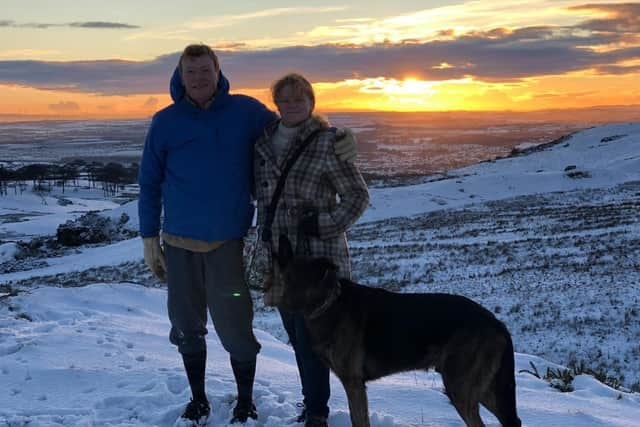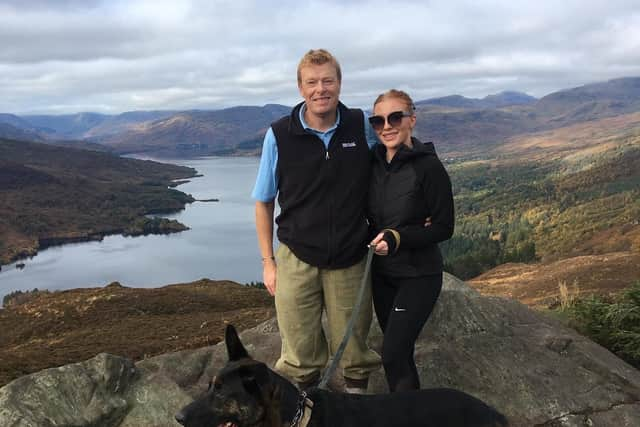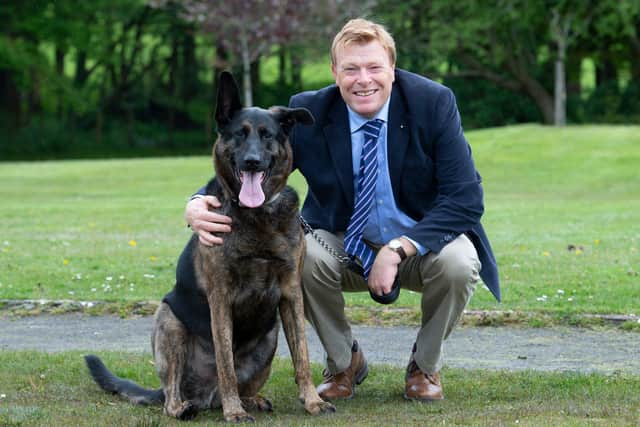West Lothian dad with blood cancer says stem cell treatment during lockdown saved his life
and live on Freeview channel 276
Let us know what you think and join the conversation at the bottom of this article.
Just weeks before being diagnosed with cancer, Harry Cartmill had climbed the UK’s highest mountain, Ben Nevis near Fort William.
But after worsening pain then in his mid to lower spine doctors diagnosed Harry with myeloma, a cancer of the white blood cells. The cancer had fractured a vertebra in his back.
Advertisement
Hide AdAdvertisement
Hide AdHarry, who has served for a decade as a councillor for Bathgate, said it was a massive blow.
The 55-year-old said: “I had never heard of myeloma but the consultant explained what it was. What worried me was to hear him say it was treatable but incurable. I should have concentrated on the positive. It had only attacked one of my vertebrae and was caught early which was a blessing. But it was hard to hear the word cancer. I was on so much pain medication I didn’t really take it in at first.
"I was under a dark cloud, wondering if I would see another summer.”
He had a stem cell transplant during the height of lockdown in March 2020, after he had started chemotherapy and steroids.


Advertisement
Hide AdAdvertisement
Hide AdHarry struggled during the treatment and missed his partner Carrie and daughter Rachel, 23. But doctors advised that the treatment which helps the body make new healthy blood cells after damage caused by the disease was his best chance of survival.
He said: “It felt like being in solitary confinement seeing nothing but the four walls of a hospital room for those three weeks.
“My hair had fallen out after the chemotherapy and I was stuck in doors with tubes sticking out of me. I’m a very sociable person and I missed my family so much. I felt a sense of bereavement for myself and my old life which I didn’t think was coming back.
“When I came out of hospital in April I could barely walk. Just taking the steps out of the ward felt like a marathon. I was looked after so well by my family and slowly started to build my strength back up.”


Advertisement
Hide AdAdvertisement
Hide AdAt the Western General Hospital in Edinburgh, doctors collected healthy stem cells from Harry. Then he had two days of high dose chemotherapy before the stem cells were put back in to his body through a drip.
The dark cloud over him slowly cleared. Five months later he scaled to the top of Ben Aa’n in the Trossachs with his daughter Rachel and German Shepherd dog, Corey.
But he knew he had got his energy was back when he made it to the top of Bathgate’s Knock Hill on New Year’s Eve to watch the sunset with his partner Carrie.
He has been told he may need another transplant in the future if he relapses but says he is determined to make every second count. Harry is supporting Cancer Research UK by starring in a new TV appeal calling on everyone to help fight against the disease.


Advertisement
Hide AdAdvertisement
Hide AdLisa Adams, Cancer Research UK spokeswoman said: “This past year proves the value of research and what can be achieved together. Just like science is our route out of the pandemic, science is our route to beating cancer.
A message from the Editor:
Thank you for reading this article. We're more reliant on your support than ever as the shift in consumer habits brought about by coronavirus impacts our advertisers.
If you haven't already, please consider supporting our trusted, fact-checked journalism by taking out a digital subscription.
Comment Guidelines
National World encourages reader discussion on our stories. User feedback, insights and back-and-forth exchanges add a rich layer of context to reporting. Please review our Community Guidelines before commenting.